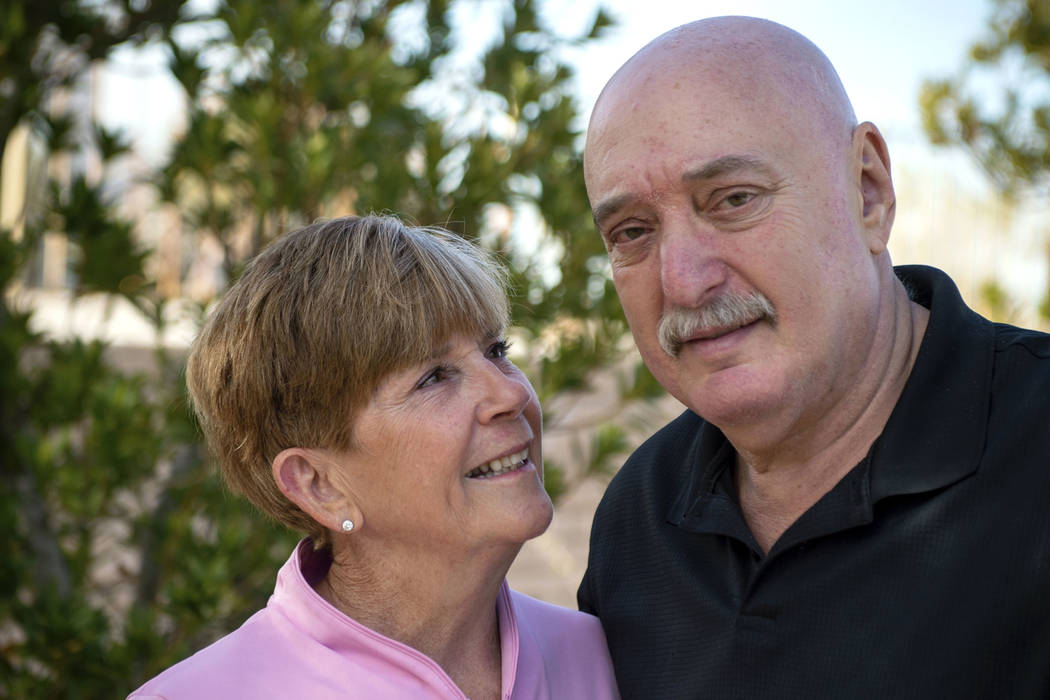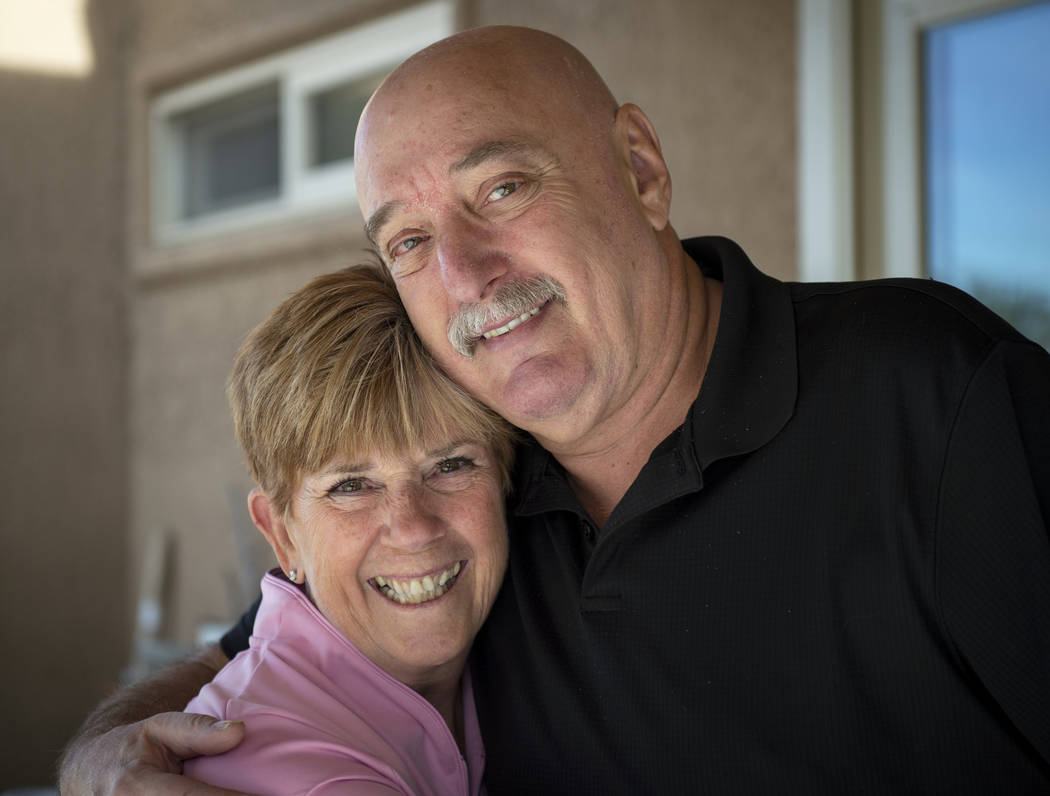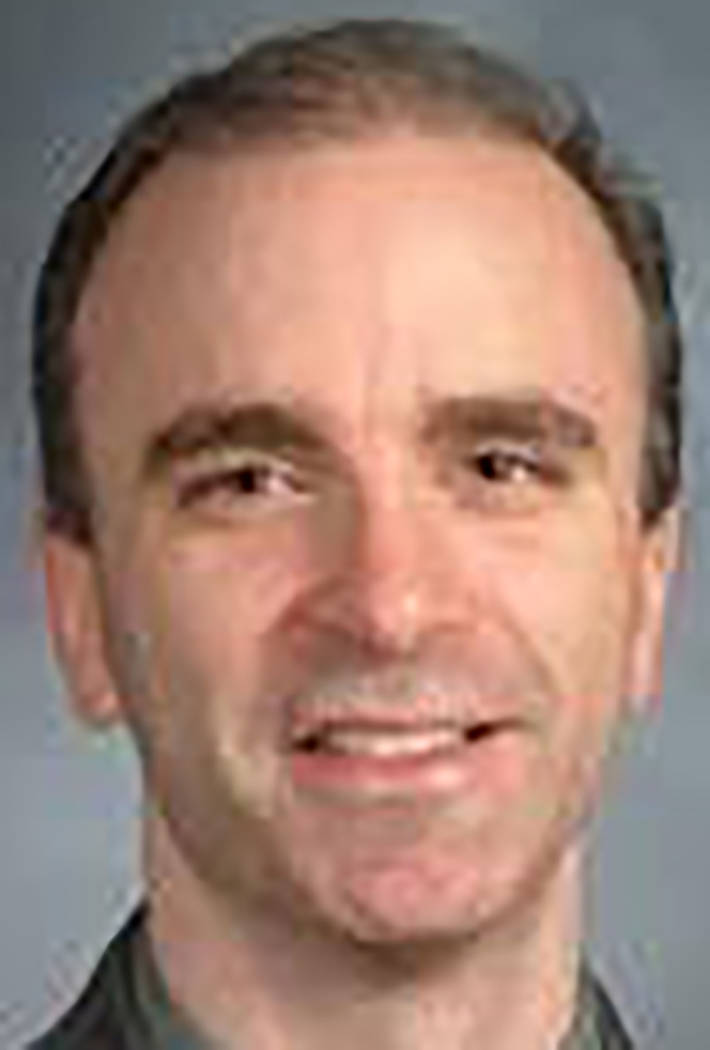For Summerlin pair, World Cancer Day is personal



Rosie Walisever of the Summerlin area felt perfectly healthy — in fact, she was returning home from a yoga class — when her doctor called to deliver bad news: a mammogram had revealed she had stage I and stage II breast cancer.
“No one else in my family had cancer … I couldn’t figure out how I had this thing in my body,” said Walisever, who was 57 at the time. “There weren’t any signs.”
It was October 2009. Rosie was living intermittently between Aruba and Massachusetts with her husband, Aaron, at the time before moving to Las Vegas four years ago.
The most traumatizing aspect of her diagnosis wasn’t physical, Rosie said.
“I felt damaged, ugly, inferior,” she said. “And I was petrified for Aaron’s state of mind since he’d lost his first wife to breast cancer. She had two types as well. I wouldn’t talk about it much. I didn’t want him reliving it.”
About nine years before, Aaron’s first wife, Sally, died at 49 after being diagnosed with stage III and stage IV breast cancer. It had spread to her lymph nodes and soon after reached her brain. Aaron was her primary caregiver and became Rosie’s once she was diagnosed.
“Watching someone you love deteriorate is the worst part of it,” Aaron said. “Watching the life leave them. Before she died, my wife actually said to me on a Wednesday, ‘Tomorrow is my day to die.’ She picked out her own casket and shroud that Monday. It takes a lot of strength to do that.”
Rosie and her husband now volunteer regularly — participating in fundraising walks and helping with American Cancer Society events. On Feb. 9, in light of World Cancer Day on Feb. 4, they’ll be volunteering at Construction vs. Cancer, an event hosted by the American Cancer Society that lets children who are cancer survivors operate construction equipment.
Lasting damage
Roseman University College of Medicine oncologist Oscar B. Goodman Jr. said that “having two types of breast cancer is particularly common in genetic cancers. The recommended approach is to just remove it.”
Radiation is a treatment method generally used to burn the cancer away, but it can have dire effects, said Goodman, whose mother, Mayor Carolyn Goodman, announced her diagnosis on Jan. 22.
“Cancer cells are generally more sensitive to radiation,” he said. “The chromosomes are open and exposed, and that allows the radiation to basically break through and remove the cancer cells. The problem with it, though, is even though the cancer cells are more sensitive, there can be damage that occurs to the surrounding normal cells. That damage can eventually lead to second cancers.”
That harsh reality terrifies Rosie, now 66, who has been cancer-free since 2014. She received radiation treatments five days a week for eight consecutive weeks, she said.
“We could get a phone call at any point saying she has it again,” Aaron said. “Cancer is horrific, and it doesn’t matter how much money you have, who you are — your religion, race. It’s cancer. And it doesn’t discriminate.”
Contact Mia Sims at msims@
If you go
What: Construction vs. Cancer
When: 10 a.m.-1 p.m. Saturday, Feb. 9
Where: Silverton, 3333 Blue Diamond Road
Registration: https://acsvegas.ejoinme.org/registration
World Cancer Day
The observation, on Feb. 4, is coordinated by the Switzerland-based charity Union for International Cancer Control. Its mission is “to unite the world in the fight against cancer, under the one banner.” For more information, visit worldcancerday.org/faqs.
Breast cancer stages
For more information about the scale used to determine the severity of breast cancer cases, visit breastcancer.org/symptoms/diagnosis/staging.














